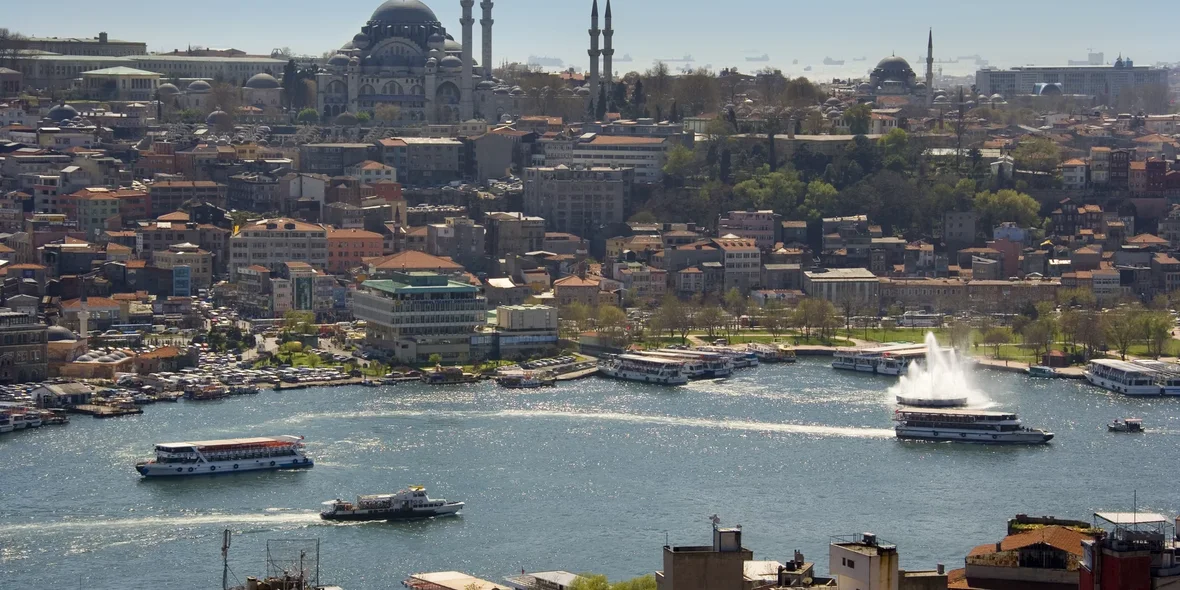
How to Get the Coveted Residence Permit in Turkey and Reduce the Risks of Refusal: Advice From a Lawyer
The wave of refusals to issue a Turkish residence permit began at the end of December 2022 and continues to this day. In April 2023, we shared personal stories of those who faced refusals to issue and extend residence permits in Turkey, as well as what to consider when submitting documents.
Today, Ozgur Ozcan, a migration lawyer in Turkey, will help us find out what the situation with refusals of residence permits in Turkey is right now and how to increase your chances of approval.
Popular Types of Residence Permits and Current Situation with Refusals
 — Can you please tell me what are the main ways of legalisation in Turkey at the moment?
— Can you please tell me what are the main ways of legalisation in Turkey at the moment?
— The first is to buy residential property in Turkey for any price. Yes, officially now there is an internal rule about the minimum price of $200,000 to obtain a residence permit, but by law there is no such restriction. We successfully challenge such refusals in the courts, which takes an average of 4 months. But then you can live in Turkey on such a residence permit for 2 years.
It is also possible to get a tourist residence permit, although the chances are now 50/50.
There is a new program ‘Digital Nomad’ – so far it is used to issue tourist residence permits, but from October a specific visa will be issued.
Student residence permit (relevant for people from 20 to 45 years old) and family residence permit when married to a Turk are popular. In addition, it is possible to apply for a work visa.
Other types of residence permits are not particularly popular at the moment.
— For what periods of time are different types of residence permits usually issued?
— A tourist residence permit and its extensions are usually issued for six months. A residence permit for real estate (TAPU) is valid for 2 years. Family residence permit when married to a Turk can be requested for 3 years. But the situation now in this regard is very fluid.
— What is the situation now with refusals of residence permits and extensions in different regions?
— Most often in Turkey, tourist residence permits are refused: in this case, the chances of getting approval are about 50/50. To increase this probability, you need to justify your tourist purposes: provide hotel reservations, tour plans, proof of income. Tourist residence permits are issued now for six months, the same period of time can most often be expected for the first renewal.
So it's a bit of a roulette wheel. From recent cases: just recently, our clients were approved for a primary tourist residence permit in Antalya for six months. We carefully counselled them, prepared a full package of documents with tourist justification. As a result, they received a favourable decision. At the same time, another couple of clients, who also fully followed our recommendations and provided all the necessary papers, received a refusal in the same province. Immediately afterwards, we proceeded to litigate their case.
So even perfectly prepared cases can end up either approved or denied. It's just a matter of trying things out.
Regarding refusals to renew: now, there are really negative trends in some regions. In Fethiye now they practically do not extend residence permits issued after February 2022. A similar situation in Izmir, Ankara, Samsun — there are also frequent refusals to extend short-term, tourist residence permits.
In Mersin, Istanbul and Antalya the chances of extension are higher, but not one hundred per cent – decisions are made with a probability of about 50/50. Categorically do not extend residence permits in Bursa.
In general, everything depends on a particular migration center and its management. Decisions are made locally, so the practice may vary greatly even in neighboring provinces.
Procedure to be Followed in Case of Refusal
— What should be done in case of rejection? How many attempts can be made?
— In case of a refusal, there are several options available. Firstly, an appeal to the court – with a good legal defense there is a good chance to overturn the negative decision
Secondly, you can try to apply for another type of residence permit, for example, if you have been refused a tourist residence permit, you can apply for a student or family residence permit.
The number of attempts is not limited. The main condition is that you must be in Turkey legally each time and you must not apply for the same type of residence permit twice in a row – six months must pass for this to be possible.
Under the new rules, the number of online applications is limited to two per 6 months. But it is possible to apply in person, through a lawyer, more often.
— What is the likelihood of success in appealing a refusal in court?
— Everything directly depends on the qualifications, experience and reputation of the lawyer who is handling the case. We ourselves have faced situations when some lawyers said that the case was hopeless, but we ended up winning it.
Also, of course, the grounds for filing a lawsuit, the presence of relevant documents and circumstances are important. In this regard, I would like to draw your attention to the fact that not all cases are worth going to court with. It is necessary to assess the prospects of a particular case in advance.
Main mistakes when applying for a residence permit in Turkey
— What does the process of applying for a Turkish residence permit look like and how long can it take?
— Firstly, the type of temporary residence permit suitable for you and the list of documents to be submitted are determined during the consultation. Then the paperwork is collected and the client comes to Turkey (either having obtained a visa or immediately without a visa — depending on the type of residence permit).
The filing itself takes about 1-1.5 months. In some provinces, such as Mersin, Kuşadası and Fethiye, the decision is announced immediately on the spot. That is, you do not have to wait for your documents to be considered, as in Istanbul or Antalya.
— If you can, please highlight the top mistakes people make when applying for a residence permit in Turkey.
— Of course, the main and most common mistake is trusting information from various chat rooms and incompetent sources. For some reason, people believe the advice of random people on the internet who have recently obtained a residence permit themselves. This is a fundamentally wrong approach.
The second serious mistake is neglecting the advice of licensed lawyers. Only lawyers have expert knowledge, understand all the subtleties of the legislation, and have experience of interaction with migration services.
Also, many people mistakenly trust realtors, insurers and other related specialists in legalisation issues. But these persons are not competent in this area and are not responsible for the result.
To avoid all these mistakes, it is necessary to rely only on the recommendations of trusted lawyers, and be ready to pay for qualified legal assistance.
The Most Common Questions About Refusals of Turkish Residence Permits
How long are the different types of residence permits usually issued for?
What is the situation with refusals of residence permits and renewals in different regions?
What to do in case of refusal? How many attempts can be made?
What is the likelihood of success in appealing a refusal in court?
What are the main mistakes made when applying for a residence permit?
Author
I am responsible for editorial work. I write expert interviews and guides.






















